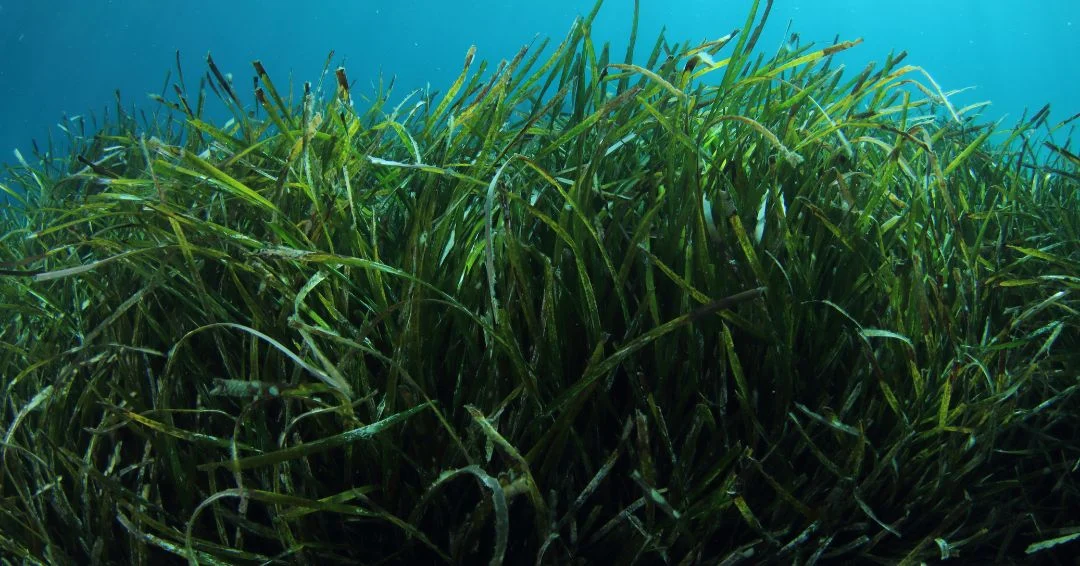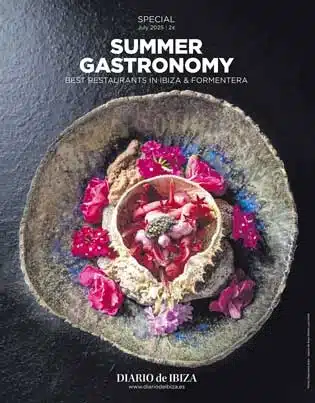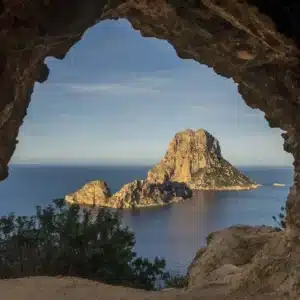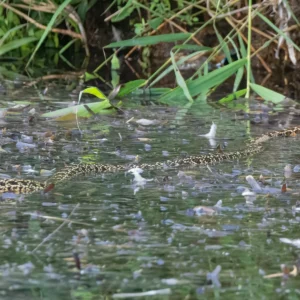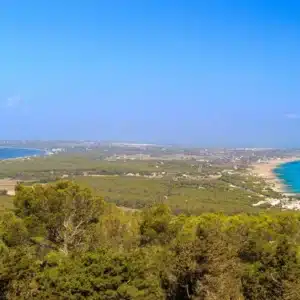Posidonia Oceanica, often referred to as the ‘lungs of the Mediterranean‘, is one of the most remarkable natural wonders found in the seas surrounding Ibiza and Formentera.
This underwater plant, exclusive to the Mediterranean Sea, is an essential part of the marine ecosystem and has played a crucial role in earning Ibiza its UNESCO World Heritage status. The meadows of Posidonia, which stretch over vast areas, are not only vital for marine biodiversity but are also responsible for the stunning crystal-clear waters that make the island’s beaches so famous.
In 1999, the United Nations Educational, Scientific and Cultural Organisation (UNESCO) declared Posidonia Oceanica as part of the World Heritage Site ‘Ibiza, Biodiversity and Culture’. This recognition highlighted the island’s outstanding natural and cultural significance.
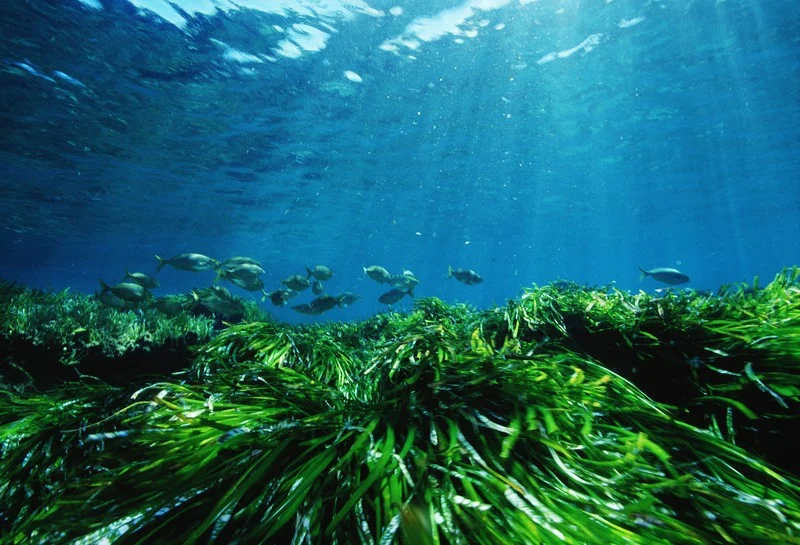
The Posidonia meadows were specifically honoured for their ecological importance, as they support a rich variety of marine life and are crucial for preserving the Mediterranean’s coastal environment. This ecosystem helps protect the coast from erosion, provides oxygen to the sea, and absorbs carbon dioxide, making it an essential contributor to climate regulation.
Why UNESCO recognised Posidonia Oceanica
Posidonia Oceanica meadows around Ibiza are not only some of the largest but also the oldest living organisms on Earth, with parts of the meadow believed to be between 80,000 and 100,000 years old. This longevity and size alone make it a natural marvel.
Spanning hundreds of square kilometres, the meadows act as a carbon sink, absorbing carbon dioxide at a rate fifteen times higher than tropical rainforests, which significantly helps in mitigating the effects of climate change. Furthermore, the meadows play a fundamental role in the marine food chain by providing habitat and breeding grounds for various species, including seahorses, molluscs, and numerous fish.
UNESCO awarded Ibiza’s biodiversity, and particularly the Posidonia meadows, as they provide one of the best examples of the interaction between marine and coastal ecosystems. These meadows not only sustain life underwater but also influence the land-based environment by maintaining the clarity and purity of the sea, which in turn supports the island’s tourism, fishing, and local economies.
The recognition by UNESCO underlines the need to protect this fragile ecosystem, as it faces numerous threats from climate change, pollution, and human activities such as boat anchoring, which can damage the slow-growing plants.
A long history of cultural and ecological significance
The Posidonia Oceanica meadows are intertwined with the rich cultural history of Ibiza. The island itself is steeped in history, having been a significant location for various ancient civilisations, including the Phoenicians, Carthaginians, and Romans. Archaeological sites such as Sa Caleta and the Necropolis of Puig des Molins testify to the island’s pivotal role in Mediterranean trade and culture during these periods.
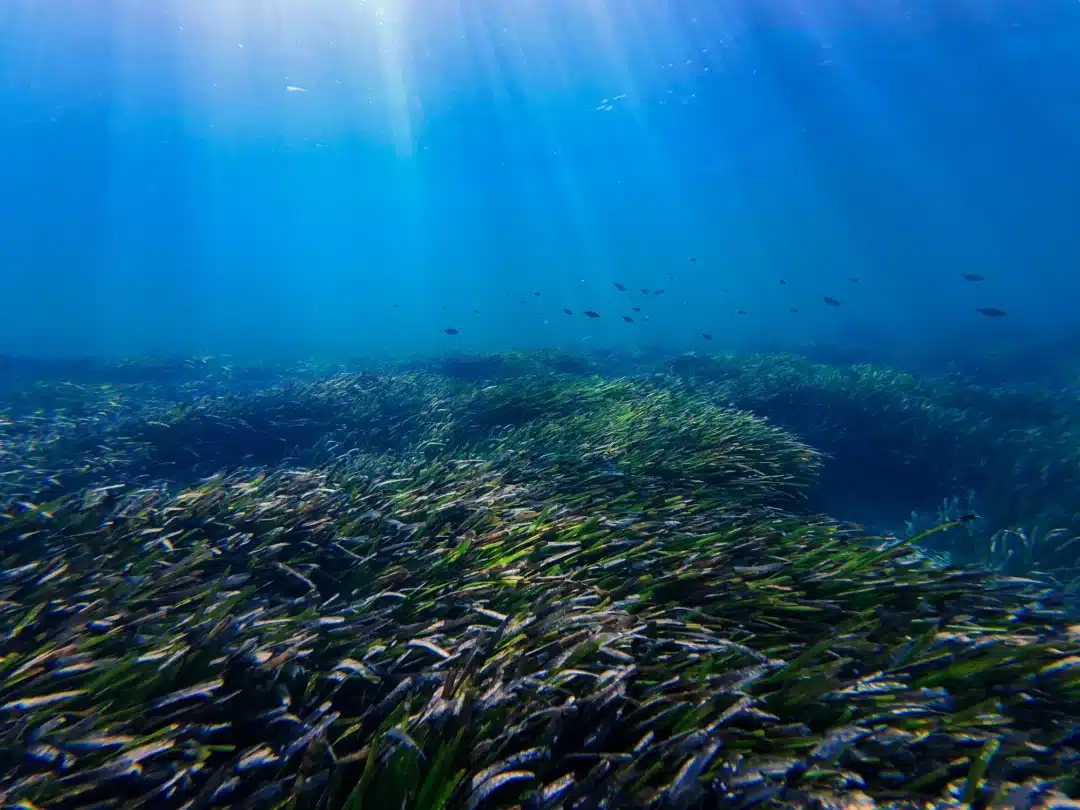
Alongside these historical landmarks, the Posidonia meadows contribute to Ibiza’s World Heritage status by exemplifying the harmony between natural and cultural landscapes. While Ibiza is famed for its ancient walled town, Dalt Vila, and its historic architecture, the island’s underwater landscapes are equally vital to its global recognition. The inclusion of Posidonia in the World Heritage listing reflects not just the island’s human history but also its natural heritage.
Current threats and conservation efforts
Despite its ecological importance, Posidonia Oceanica is under threat. Over the past few decades, the warming of the Mediterranean waters, pollution, and unregulated anchoring of boats have caused significant damage to the meadows. Posidonia grows extremely slowly, at a rate of about one centimetre per year, meaning that any damage can take centuries to heal. Climate change poses an even more insidious threat, as warmer water temperatures can kill off vast sections of these meadows.
Conservation efforts are underway to mitigate these threats. Local organisations like IbizaPreservation have been actively working to raise awareness and protect these underwater treasures. Initiatives include promoting responsible boating practices to avoid anchor damage and reducing pollution through educational programmes. They also support projects that help monitor and restore damaged areas of the Posidonia meadows. Technological solutions, such as mobile apps that guide boats on where to anchor safely, are also being introduced to protect the meadows from further harm.
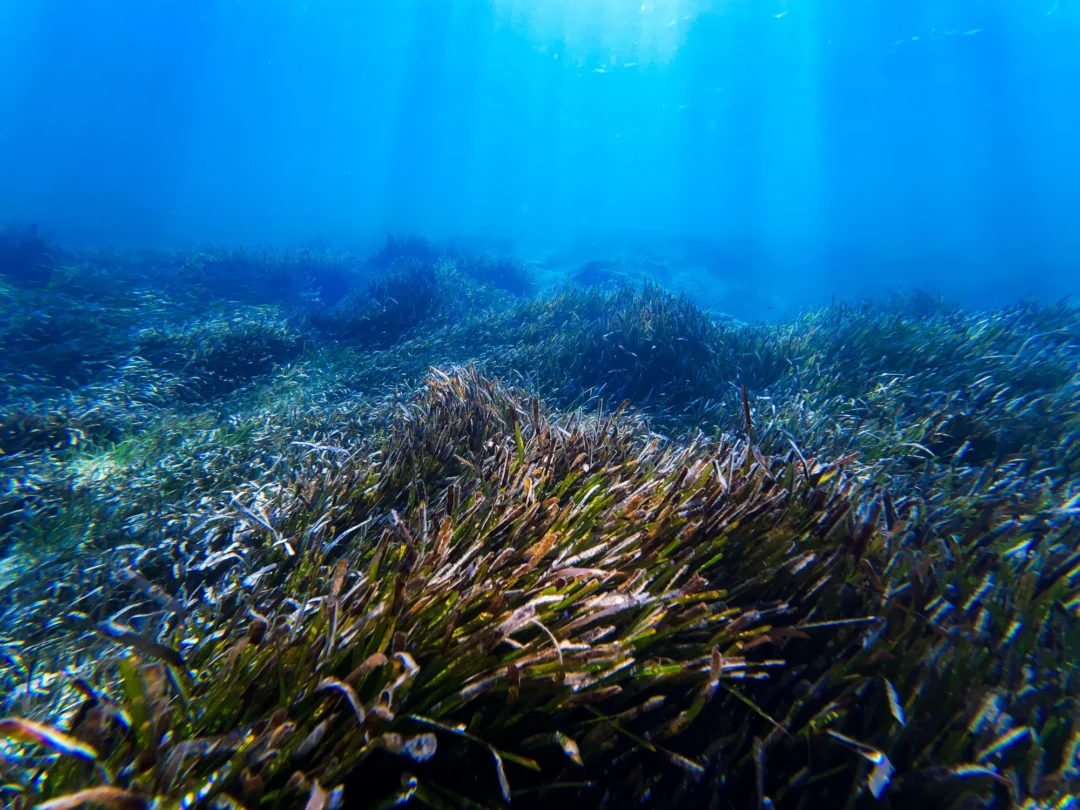
Posidonia Oceanica is far more than just a plant; it is a symbol of Ibiza’s natural beauty and ecological resilience. Its UNESCO World Heritage status is a testament to its global significance, serving as a reminder of the importance of protecting such vital ecosystems for future generations.
The meadows are not only essential for marine life but also for the livelihoods of those who depend on Ibiza’s clear waters and thriving ecosystems. Protecting Posidonia Oceanica means preserving the balance between nature and human activity, ensuring that Ibiza remains both a cultural and ecological treasure for years to come.
